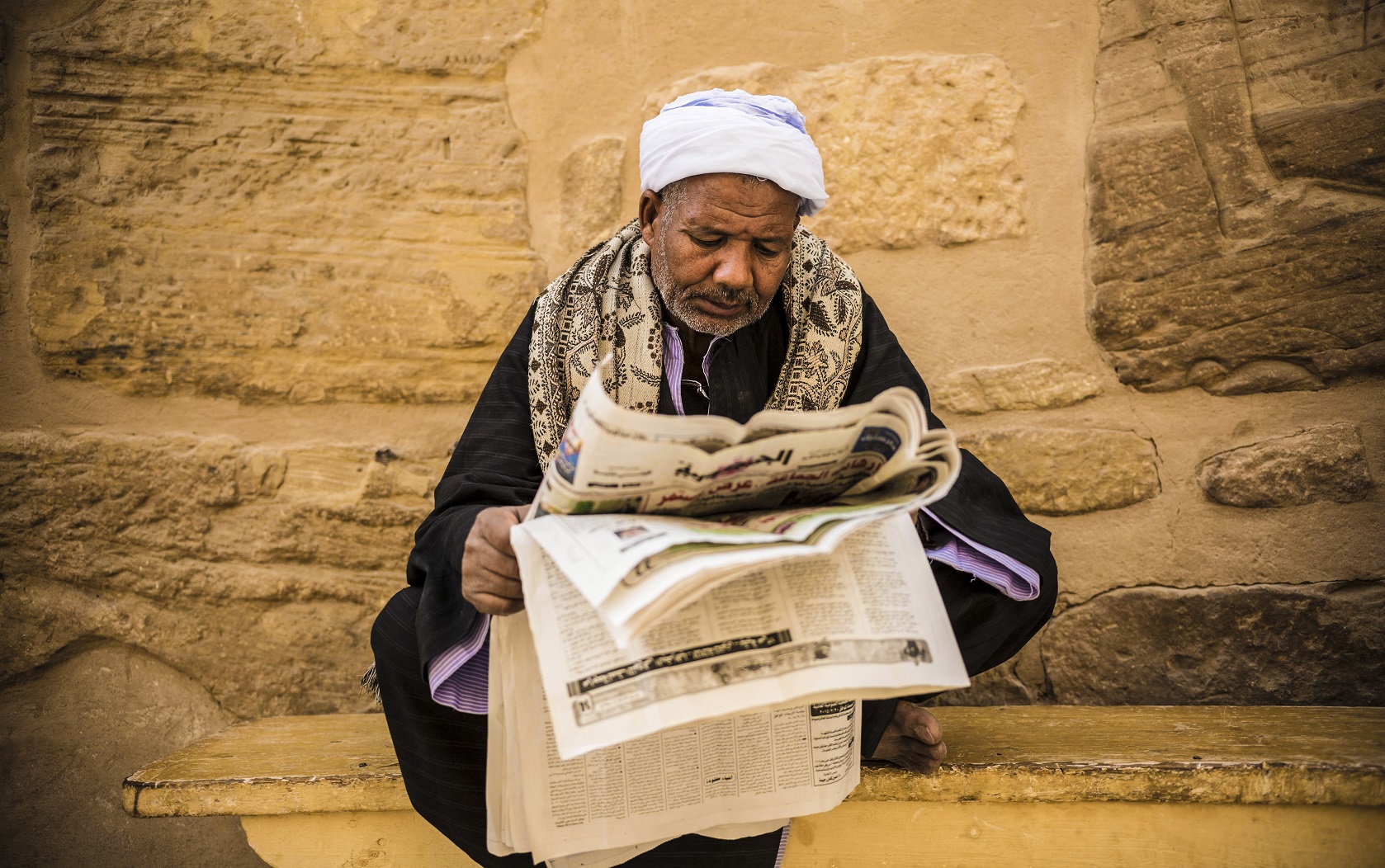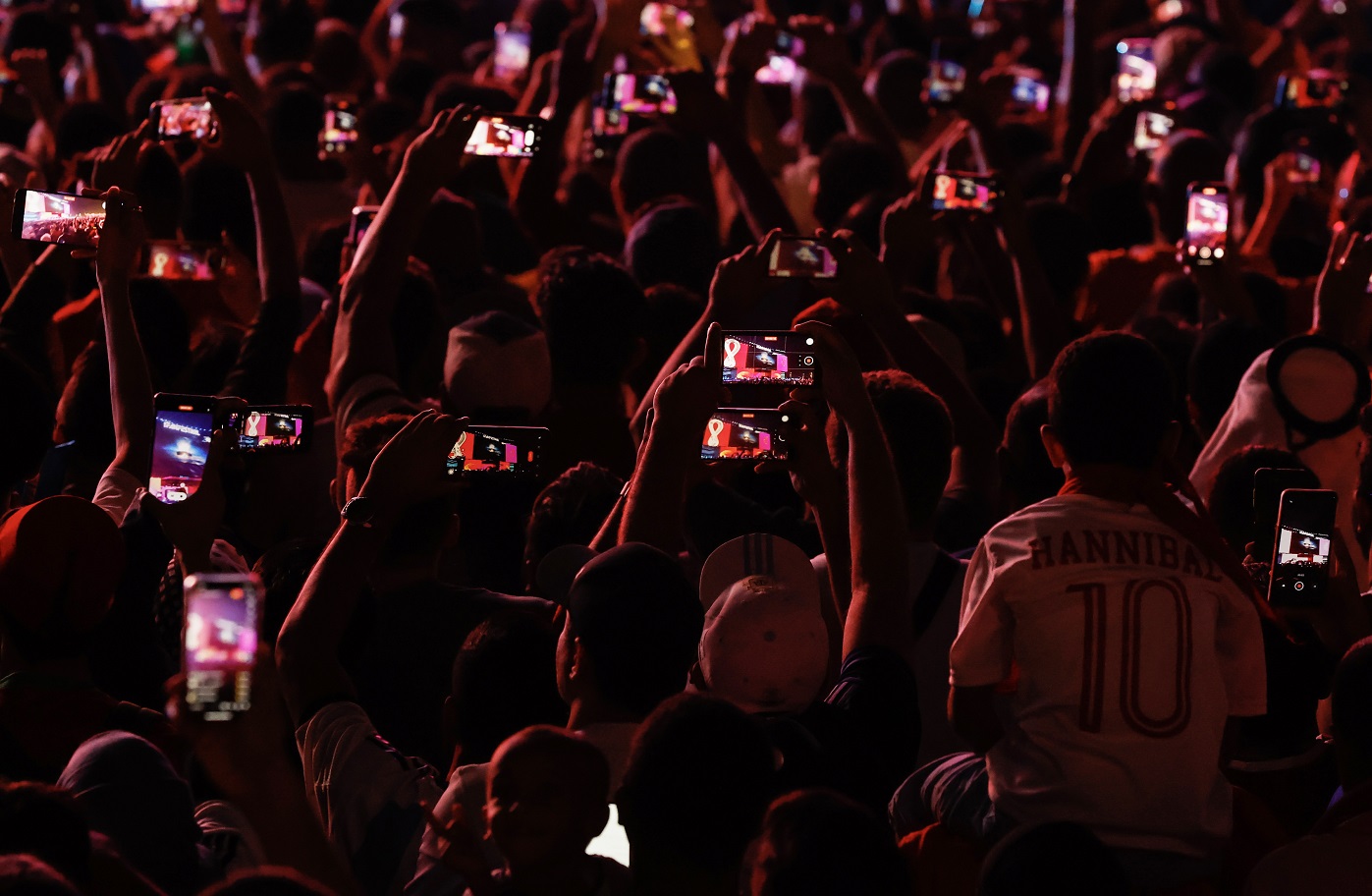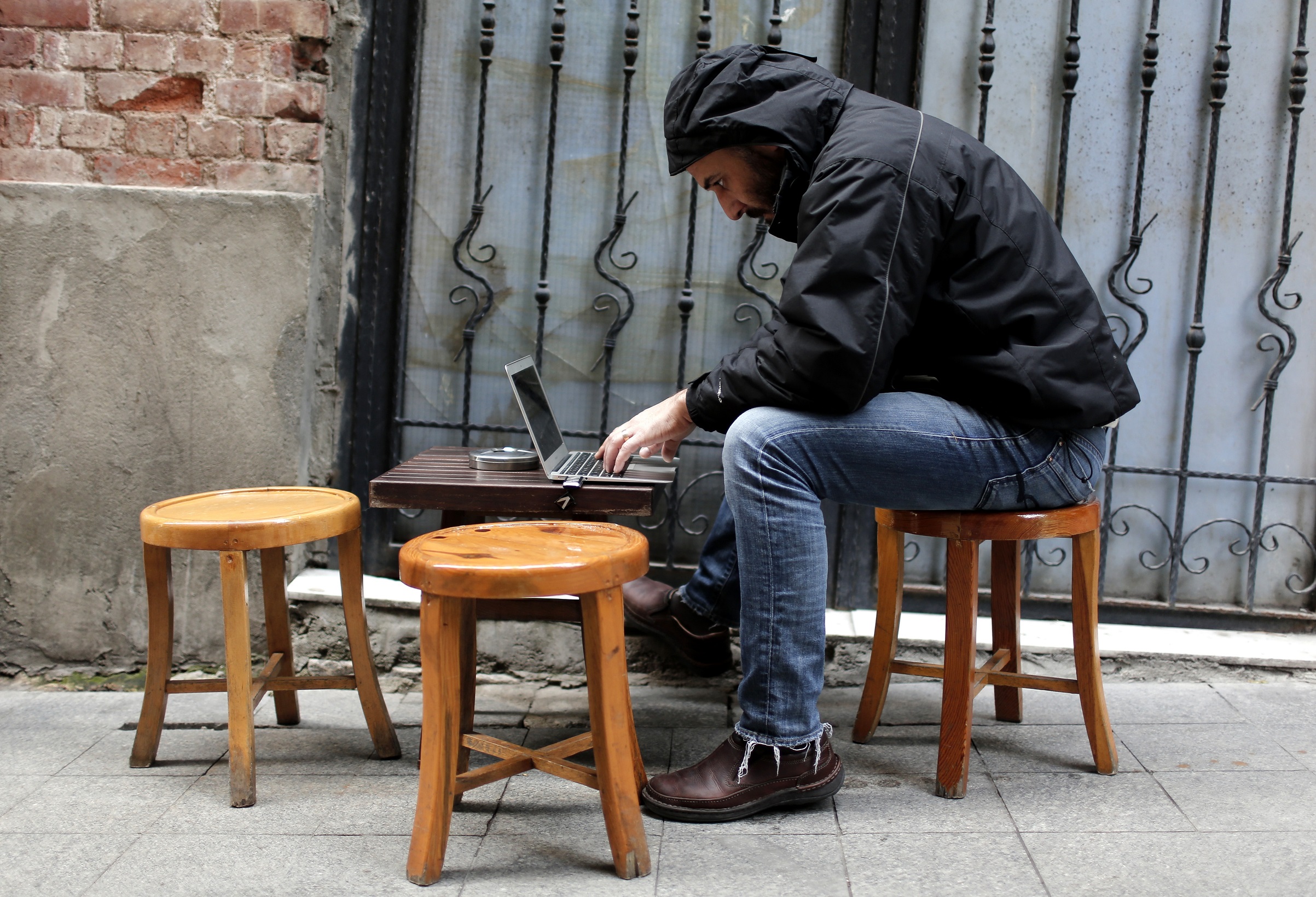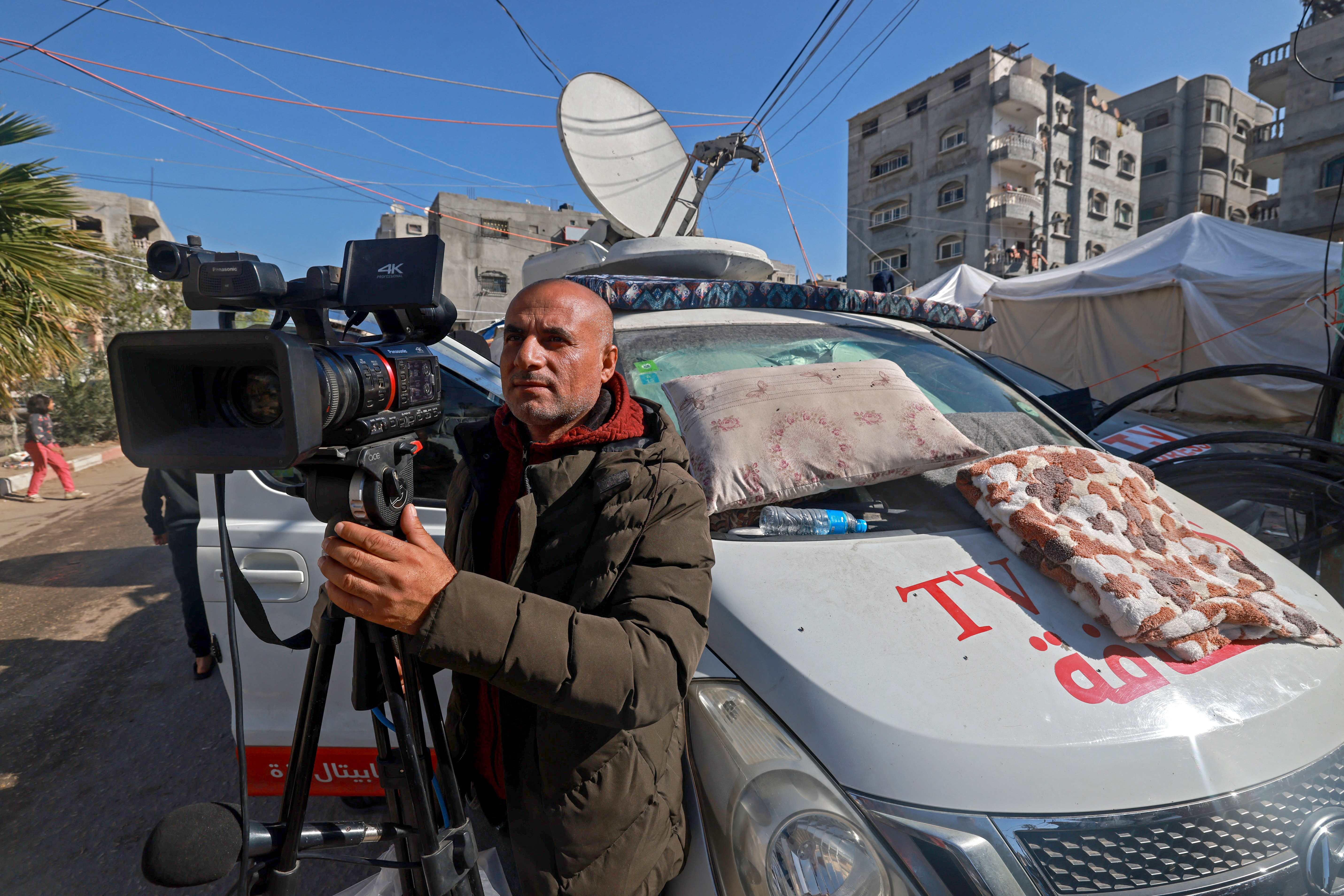لم يخرج النقاش الأكاديمي حول تعريف القيمة الخبرية عن سؤال: "لماذا تم اختيار هذه القصة للنشر؟" الإجابة الطوباوية هي بالطبع أهمية الحدث نفسه ومدى تأثيره في المصلحة العامة، وهي إجابة لا علاقة لها بواقع الممارسة الفعلي.
في عصر ما قبل الإنترنت كانت هناك عوامل أخرى موضوعية وغير موضوعية تؤثر في قرار منح حدث معين القيمة الخبرية اللازمة ليتحول لقصة صحفية؛ تحيزات الصحفي واهتماماته – الواعية وغير الواعية-، توجهات المؤسسة الصحفية، قرارات الملاك والمعلنين، والضغوط الحكومية. لقد تعرض الموضوع للكثير من التنظير في الممارسات الأخلاقية الفُضلى لضبطها، دون أن ينادي أحد بضرورة وضع منظومة قواعد أخلاقية جديدة تتماشى معها.
مع دخول المنصات الرقمية لعملية صناعة الخبر توسعت تلك العوامل -ولا زالت تتوسع-، كما تحولت ذات العوامل السابقة المؤثرة على موضوعية تحديد القيمة الخبرية للأحداث، لأشكال جديدة لكنها تنتج ذات التحيّزات، فمثلا توسعت الضغوط لأبعد من الملاك والمعلنين لتصل لخوارزميات المنصات الرقمية التي تتحكم فيما ينشر. كما أن تحكم ذات الخوارزميات فيما يراه الصحفي من معلومات وأحداث، جعل لها اليد العليا في تشكيل تحيزاته، وبالنتيجة القوالب الصحفية الجديدة وحتمية توافقها مع قواعد الانتشار المتغيرة بتغير مزاج المنصات الرقمية.
هذه الحالة من فقدان السيطرة على الميدان ومصادر المعلومة، جعلت مفهوما مثل "القيمة الإخبارية" غاية في السيولة، وربما يصعب إجماع صحفيَّين اثنين على معايير محددة تجعل من الحدث يستحق للتحول إلى خبر. فهل هو "الترند" أم قابلية الحدث للانتشار وحصد المشاهدات، أم تأثيره على المصلحة العامة؟ امتدت تلك السيولة - كنتيجة حتمية - لتصل للقواعد الأخلاقية للصحافة ككل؛ فلا الموضوعية تجيز انتقاء الأخبار استنادا على معيار قابليتها للانتشار، ولا وجود لاستقلالية في ظل سطوة الخوارزميات على كافة مراحل إنتاج الخبر.
توسعت الضغوط لأبعد من الملاك والمعلنين لتصل لخوارزميات المنصات الرقمية التي تتحكم فيما ينشر.
للتغلب على هذا الطارئ ينادي البعض بضرورة إعادة رسم القواعد الصحفية لتستوعب هذه المُحدثات الرقمية، أو بضرورة إنتاج "منظومة أخلاقيات صحفية جديدة" تتحرر من القواعد القديمة، إذا سلمنا بأن "الأخلاقيات" كقواعد تتغير وفق تغير أساليب الكتابة والنشر. إنه ادعاء يُمكن المحاججة فيه بشدة، ذلك أن الصحافة مفهوم متجاوز للشكلانية، ولا تقوم على شكل أو قالب أو أسلوب سرد؛ لذا فالجزم بضرورة وجود "قواعد" أخلاقية جديدة فقط لأن آلية إنتاج الخبر ونشره واستهلاكه قد تغيرت، يبدو أقرب لمغالطة، لا سيما ممن أخذ هذه المطالبات ليسوّغ القطيعة تجاه القواعد الأخلاقية للمهنة، بحُجة مواكبة احتياجات الجمهور وقواعد النشر التي تفرضها المنصات الرقمية.
إن أساس الأزمة اليوم هو غياب ذات القواعد في تقييم كل ممارسة جديدة تفرضها قواعد النشر الرقمية. وسبق لنا في معهد الجزيرة للإعلام أن أصدرنا دليلا بعنوان "أخلاقيات الصحافة في العصر الرقمي" حاولنا فيه إثارة النقاش حول أبرز المعطيات الجديدة في الممارسة الصحفية في العصر الرقمي والتي تستلزم نقاشا معمقا داخل غرف الأخبار للوصول لآلية مهنية للتعامل معها.

الصحافة ومعركة لفت الانتباه
يرى الفيلسوف الفرنسي موريس ميرلو بونتي، في كتابه "ظواهرية الإدراك - phenomenology of perception" أن "الوظيفة المعنية بكشف الأشياء الموجودة في الظلام تُسمى الانتباه". بالنظر لصياغة ميرلو بونتي، فإن وقع هذه الكلمات سيبدو مألوفا جدا للصحفيين، إذ أن كثيرا من أدبيات الصحافة تعتبر وظيفة المهنة الأساسية هي كشف الانتهاكات التي تحدث في الظلام، فيمكن القول إن وظيفة الصحافة تتمحور أساسا حول لفت الانتباه لما يجب على العامة أن ينتبهوا إليه خدمة لمصالحهم.
لكن السؤال الأخلاقي الذي يبرز هنا؛ أي ظلام سيدركه الضوء ليكشف ما فيه؟ هل يتعلق الأمر بكل كشف مهما كان؟ وهل لفت الانتباه لقضايا هامشية يوازي كشف قضايا فساد كبرى على سبيل المثال؟
بصياغة أخرى، ما هي القيمة الخبرية لكل كشف يقوم به الصحفيون؟ وكيف يمكننا تحديد تلك القيمة في زمن طغت فيه "أرقام المشاهدات والتفاعل" كقيمة جوهرية لنجاح القصة الصحفية؟
يُضاف إلى هذا التساؤل معضلة جذب الانتباه بحد ذاتها، ففي وقت التدفق الهائل للمحتوى في المنصات الرقمية، وتجزؤ الجمهور لاهتمامات شتى ارتكنت كثير من غرف الأخبار الرقمية إلى بناء إستراتيجية محتوى تستند على معيار مواكبة "قواعد الانتشار" في خوارزميات تلك المنصات؛ ربما لعجزها عن فهم هذه الاهتمامات الشتى، أو اكتشاف معالجة يمكنها لفت انتباه أكبر قدر من الجمهور.

لا يلام الصحفيون تماما عن هذا العجز؛ إنه عصر إغراق المحتوى وما يهم الناس يتغير بسرعة، فكل يوم تبرز أكثر من قضية تشغل الرأي العام، وحسب اهتمام كل شريحة منهم. أكتب هذا المقال في آخر أيام عام 2022 (31 ديسمبر)، وما زال صدى "انتقال كريستيانو رونالدو لنادي النصر السعودي يشغل جزءا من الجمهور"، كما "توفي اليوم بابا الفاتيكان السابق بنديكتوس السادس عشر"، "الجيش الروسي يشن حملة قصف مكثفة على كييف الأوكرانية"، تزامنت مع "اتفاقية تبادل سجناء بين روسيا وأوكرانيا"، و"غرق قارب هجرة في شمال لبنان"، و"كوريا الشمالية أطلقت 3 صواريخ باليستية تجاه البحر الشرقي"... كل هذه أحداث تحمل قيمة خبرية لا يملك الصحفيون ترف تجاهلها، ولا باستطاعتهم إغفال هذا المد الجارف من المعلومات من أجل التأني في الكشف عن قصة فساد كبرى أو إنجاز محتوى معمق حول أي شيء.
لكن، هل كل هذه القضايا تستلزم تغطية أبعد من الخبر؟ وهل كل حدث يحمل قيمة خبرية ما، يعني أنه صالح للمعالجة في كافة أنواع القوالب الصحفية؟
هذه الحالة من فقدان السيطرة على الميدان ومصادر المعلومة، جعلت مفهوما مثل "القيمة الإخبارية" غاية في السيولة، وربما يصعب إجماع صحفيين اثنين على معايير محددة تجعل من الحدث خبرا.
جرب مرة تتبع دورة حياة أبرز المواد الخبرية على المنصات الصحفية الرقمية، ستجد كثيرا منها ينتقل بشكل تلقائي من قالب لآخر دون أي تقييم لصلاحيته في كل قالب؛ فتجد حدثا قد بدأ كخبر عاجل ثم تحول لتقرير موسع، ثم فيديو قصير ففيديو تفسيري طويل، فحلقة بودكاست... والمفارقة أنك ستجد نفس الخبر قد مر بذات هذه الدورة في منصات إخبارية مختلفة، حتى بات المحتوى الصحفي مغرقا في التكرار، ولأحداث ربما لا تحمل قيمة خبرية تستلزم هذا التوسّع، ما ينتج عنه تشتيت الجمهور ويُفقد الصحافة قيمتها الأساسية كأداة للفت الانتباه وتركيزه تجاه قضايا محددة.

بين القيمة والانتشار
يمكن أن نقسم المذاهب الصحفية اليوم لمذهبين اثنين، الأول يقول إن على الصحافة التأقلم مع متطلبات الجمهور، وفهم سلوكياته الرقمية، لتقديم محتوى يضمن التفاعل والوصول (ويمكن القول إن النتائج لافتة ومثبتة بالأرقام)، وأن يكون ذلك ضمن قوالب تستوعب عمل الخوارزميات، ليبقى المحتوى الصحفي رائجا ومتصدرا لـ "الترند" ولا يترك الأخير لغير المتخصصين من صناع المحتوى. يستلزم ذلك تساهلا بالمعايير المهنية والأخلاقية، فيصبح ما يحدد القيمة الخبرية للحدث هو قابليته للانتشار، وإثارة الجدل، وتسيد "الترند"، ما يعني أن الأحداث المهمة والتي يصدف أنها "مملة" ربما لن ينتبه إليها الصحفيون.
وثمة المذهب الثاني الذي يرى أنه على الصحافة الالتزام بمعاييرها التقليدية في تحديد القيمة الخبرية؛ ما يؤثر فعلا في المصلحة العامة، والحرص على التعامل مع خوارزميات المنصات الرقمية بانضباط يقتصر على ما يخدم انتشار المعلومة وإثارة الانتباه لما هو مهم، ومحاولة تطويع القوالب الجديدة للقواعد الصحفية خدمة لذلك، متحملين العواقب السلبية من احتمالية تعرض محتواها للإقصاء من الخوارزميات وإضعاف وصولها للجمهور.
ربما يرى البعض أن كلا المذهبين ينطويان على وجاهة؛ فمن جهة لا يمكن للصحافة أن تحقق وظيفتها إن لم تصل للجمهور، وفي الوقت ذاته لا يمكنها الحفاظ على قيمتها كمؤسسة للحقيقة إذا التبست على الجمهور مع صناع المحتوى والمؤثرين والصفحات اللاهثة وراء جني عوائد المشاهدات.
لكن هل وظيفة الصحافة تلبية احتياجات الجمهور مهما كانت؟ وهل معيار القيمة الخبرية يستند إلى ما ينجح في الانتشار؟ وما قيمة الخبر إن لم يصل للجمهور مهما بلغ من أهمية؟
الجزم بضرورة وجود "قواعد" أخلاقية جديدة فقط لأن آلية إنتاج الخبر ونشره واستهلاكه قد تغيرت، يبدو أقرب لمغالطة.
الثوب الجديد للصحافة الصفراء
إن ما نراه من تركيز منصات صحفية رقمية على الإثارة وجذب التفاعل وتجاهل القواعد الأخلاقية والمهنية، ليس جديداً البتة، وإن نجاح هذا النوع من المحتوى في الانتشار أمر حتمي ولا علاقة له بعزوف الجمهور عن الصحافة الجادة، فالحال على هذا النحو منذ تسعينات القرن التاسع عشر، عندما بدأ أسلوب "الصحافة الصفراء" بالانتشار، والتي وللمفارقة كان جوزيف بولتزر -التي سُميت جوائز بولتزر للصحافة باسمه- أحد روادها. ولليوم، ما زالت الصحف الصفراء تُهيمن على أرقام المبيعات في كثير من الدول حول العالم.
مكمن الخطورة هنا، هو أن كثيرا من المؤسسات الصحفية الرصينة بدأت تستسلم لهذه المعايير التي بقيت تقاومها لعقود، لما لها من عوائد انتشار كبرى تضمن لها الوصول والاستمرارية، دون أي محاولة جادة للوصول لأرضية وسط، أو ابتكار معالجات تضمن تغطية الأخبار الفعلية بقالب قابل للانتشار، يلتزم بالمعايير الأخلاقية، ولا يُفقد الخبر قيمته.
ما يعني أننا - ربما - على وشك الدخول لمرحلة يُصبح تعريف القيمة الخبرية للأحداث قائما على الترفيه والقدرة على إثارة الجدل والرومانسيات الوطنية وكليشيهات التسامح والانتصار للهويات الفرعية المتعصبة؛ لأن هذه أكثر ما يضمن الانتشار.
ما يحدد القيمة الخبرية للحدث هو قابليته للانتشار، وإثارة الجدل، وتسيد "الترند"، ما يعني أن الأحداث المهمة والتي يصدف أنها "مملة" ربما لن ينتبه إليها الصحفيون.









![Palestinian journalists attempt to connect to the internet using their phones in Rafah on the southern Gaza Strip. [Said Khatib/AFP]](/sites/default/files/ajr/2025/34962UB-highres-1705225575%20Large.jpeg)






























